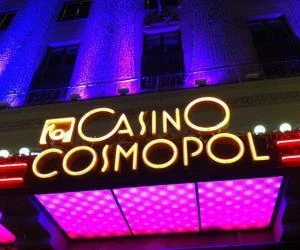Gustaf Hoffstedt, secretary general for Sweden’s gambling trade body BOS, believes Sweden’s land-based casino sector could have been profitable if private operators had been able to compete with the Svenska Spel monopoly. 
Speaking to iGB’s sister publication GGB, Hoffstedt sees the lack of innovation at Svenska Spel’s Casino Cosmopol as one of the major factors behind its demise.
“Casino Cosmopol remained a monopoly to the end, which meant no competition or innovation,” he said. “If there’s no competition, innovation dies.”
In April the monopoly closed its remaining venue in Stockholm, weeks after parliament moved to end land-based gambling in the country.
On 2 April the Riksdag said land-based casinos in Sweden no longer served their purpose. It pointed to declining profitability and visitor numbers at Casino Cosmopol.
A proposal to discontinue Casino Cosmopol was first tabled last May. The amendment will become effective from 1 January 2026. From this date, land-based casinos will not be permitted in Sweden.
At the time, Casino Cosmopol CEO Ola Enquist highlighted continued negative performance across the division in recent years. Enquist said the rise of online gambling in Sweden has turned more players away from land-based casinos.
Online suppliers could benefit from thriving land-based sector
Despite the shift to online, Hoffstedt believes land-based casinos could fulfil an important role in Sweden’s gambling ecosystem. They could offer a touch of glitz and glamour to the tourism and leisure crowd.
“I believe land-based casinos could be profitable in cities like Stockholm, Malmö, and Gothenburg – if they were open to private operators,” he says.
If the government were to reverse its decision, a number of BOS’ remote operators would likely be interested in a licence.
Many gambling businesses supporting the online sector have a direct interest in keeping a healthy land-based sector alive.
“Companies like Evolution partner with land-based casinos, which adds authenticity to their online offerings,” he explains. “Lose that and you lose a key selling point.”
Land-based closure could fuel black market
Instead, the move to end land-based casinos in Sweden will likely fuel black-market operators.
Sweden has one of the highest shares of online operators in Europe, according to the European Betting and Gaming Association (EGBA). Up to 68% of the country’s gross gambling revenue (GGR) is generated online, compared with just 32% in retail settings (prior to the final casino closure).
Caught between cutting-edge online brands and a stiff, state-monopoly run land-based sector, the gambling market in Sweden presents a particularly strong contrast between the two channels.
This, alongside the trend towards digitalisation, could have played a role in its decline.

